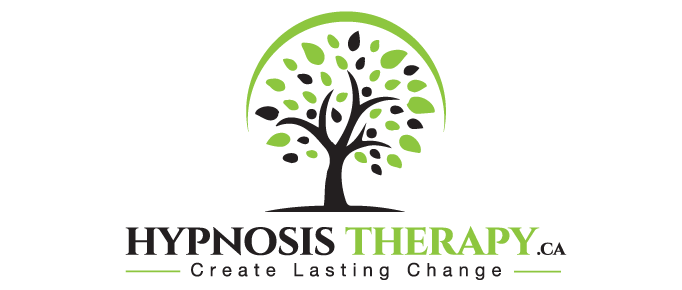Countries all across the planet have created this huge self-improvement movement in the last few decades. It’s at an all-time high.
Everyone’s high fiving each other.
We’re reading more books about transforming our lives. We’re trying new habits. We’re listening to self-improvement podcasts. Live events with the likes of Tim Ferriss and Tony Robbins are selling out everywhere. Anyone who preaches self-improvement is becoming “Internet Famous.”
There’s one challenge though everybody:
“If we all try to improve ourselves and not each other, we’re screwed”
That’s why we need more creators.
Passive consumption does nothing for no one.

If you’re going to consume lots of self-improvement content and go to all these rah-rah stand on one-foot events, then you need to remember one thing:
Self-improvement is meaningless if you don’t create something that’s designed to help somebody other than yourself.
There’s no joy or fulfillment in improving yourself. Take a look at all those Wall Street folk who supposedly have it all. Do they look happy to you? Mostly not.
Let me stop you for a second.
Thus far, you might be falling for the lie that I’m against self-improvement. I’m not. I consume more of it than is humanly possible. The challenge was that after a while, likes, comments, money and internet fame got boring.

So, I thought to myself there has to be a better way. As I begun reading books about people who had achieved great things I saw a pattern: it was what they created for all of us that became the cornerstone of their life not the achievement of goals.
Creating cool stuff that helps people is the goal.
“Stuffing your face with positive content so you can then stuff your face with the riches of life is not the end game”
Self-improvement never stops. It’s what you do with it that’s crucial.
How’d you like to play a game where you never win? That’s what self-improvement is. It’s a game you play by yourself (how lonely?) that never feels like you got anywhere. You keep on improving and then move further away from the person you used to be.
The danger is that when you go so far down the self-improvement path, you can fall into the trap of thinking you’re better than everybody else. You can fall for the delusion that everybody else is stupid and you’re so smart because you know the 101 life hacks to success.
Again, what has worked for me is finding a way to channel your self-improvement into a cause, goal, vision – whatever you want to call it – that ends up in you creating something of value for all of us.
For me, I found that the self-improvement content, events, books and podcasts led me to create my own content. I then used this content to reach more people and find ways to solve their problems (or at least bring certain addictions and ideas to the surface).
That’s what version 1.0 looks like in my journey. The next phase will be bigger than that. I want to create something that can bring even more value. So, it’s not the fact that I’m a different person to five years ago; it’s the fact that I’m creating now, whereas five years ago I was consuming only.

Self-improvement makes us think we’re getting somewhere.
The reason why self-improvement has become so addictive is that it leads us to the conclusion that we’re making progress. Just like when you play games on your phone, as you reach the next level and you crank up the difficulty, the progress you’re experiencing feels really good.
Your brain tells you that you must be getting progressing and so you do more of what feels good. After a while, self-improvement gets boring. It’s at this point that we often hijack our own success. To paint a picture of what this looks like it’s based on one human issue: ego.
Too much self-improvement leads to feelings of being bored. To make yourself feel better, you get your rocks off by telling us all how phenomenal you are. What can be even worse is when this problem leads to you having to put others down for not being on the same level as you.
“You don’t always need to be going somewhere. Where you are right now is beautiful. That’s the hack”
An overdose of self-improvement can lead to perfectionism.
So, if there’s no end goal, then what can this daily self-improvement obsession cause you to do? The answer I’ve found is it can lead to perfectionism.
You end up trying to be good at everything. You over-analyse your time, you become obsessed with productivity, you say no too much because every book you read tells you the benefits of a decline, you workout more than you need to, you never have fun and eat something that is not healthy, you force those around you to be like you, you delete too many people from your network because they’re somehow too toxic for your perfect new life.
Need I go on? Nobody is perfect including you. Self-improvement will not lead to mastery in everything you touch. You don’t have the Midas Touch because of self-improvement.
Spend less time being succumbed to endless self-improvement and get back to creating again.
Execution is the key, not the pump up that is self-improvement.
The harsh reality is you’ll only be remembered when you’re dead for what you created, not how much self-improvement you did. The aim of life is to execute on something, anything. The word execution is a close relative of the word creation.

You create so you can serve others and solve meaningful problems.
The reward for this creation is fulfillment, meaning and a life well-lived.
That’s the formula right there for mastery. Self-improvement is the picture frame that holds these pieces of the puzzle together, but it’s not an actual piece of the puzzle itself. Without these three keys, you end up with a picture frame and no picture inside of it. The picture inside is what you create.
We can all become self-improvement junkies and be the same as each other. What makes us different though is what we create. Creation gives us our unique abilities, personalities and defining attributes.
Just seeing the world through others is not enough.
One of the core concepts of self-improvement is modeling others through, podcasts, books, events, etc. The challenge with this is that if you never get in the car and drive it yourself, then all you have is an idea of what life is like rather than real-world experience.
You need the experience that comes from creation otherwise you’ll start driving the car of life and hit a brick wall in the car park before you’ve even got on the highway because you don’t know how to solve problems.
The creation process is filled with problems, challenges, people who don’t believe in you and detours you’ll never predict. The fun part is not continually learning the self-improvement models of success; the fun part is creating a fusion of success through your own models, and the models you learn from self-improvement.
***Final Thought***
I hope I’ve managed to shed some light on the myth that too much self-improvement brings. Too much focus on yourself will lead to more pain. Concentrate on executing, creating and doing things that are not only good for “yourself.”
Self-improvement is at its best when it’s overshadowed by creating and executing.
The world needs more creators. Why can’t you be a creator?
If you want to increase your productivity and learn some more valuable life hacks, then join my private mailing list on timdenning.net
Source: Success


Leave A Comment
You must be logged in to post a comment.